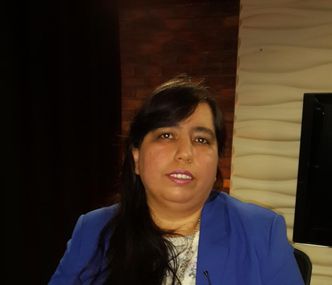News
WHAT'S

GAU Lecturer Gülcan Explains Gender Apartheid And International Women’s Day
Girne American University Education Faculty lecturer Assoc. Prof. Dr. Nur Yeliz Gülcan provided information about gender apartheid and international women’s day in a TV show. Making remarkable statements about the topic in TV, Nur Yeliz Gülcan regards the fact declaration of International Women’s day as the historical rights of the women by emphasizing on inequality and gender apartheid against women.
At the international Socialist Women Conference in Copenhagen of Denmark in 1910, United Nations general assembly declared March 8th as ‘International women’s day’ in December 16th 1977 in pursuit of killed women in textile factory fire in March 8th, 1857.
Women come up against gender apartheid and inequality throughout history. The difference between male and female cannot be defined as only biological based. When considering the roles of men and women in society, there are so many differences amongst cultures. Accordingly, Gender sense specifies the statutes and roles of men and women in society. Gender mainstreaming is shaped according to social, economic, cultural structures of societies.
Gender apartheid is defined as being deprived of basic service, inequality at having opportunities and conditions, being exposed to violence and represented in low rate in political and work life of women. In this context, we come across gender apartheid in education, economic, politic and social life.
Gender apartheid in system of education comes up as individuals are deprived of education opportunities due to their genders. Women’s education is one of the basic indicators which are supposed to international human development and mensuration. Direct discrimination dies out widely nowadays considering the past. In economy, we experience gender apartheid in division of labor and charges. As the women are precluded from joining decision mechanisms, they are represented in lower rate considering men. This is defined discrimination in politic life. Acting freely constraint and being attentive to clothing, speaking and acting obligation rate among the gender apartheids against women as a matter of social life.
Violence is the most substantial topic which women come across discrimination. Violence against women is built in culture in a way. Violence against women is also human rights abuse. Today, there are women facing violence and sexual abuse.
There are also actions taken for preventing gender apartheid. These actions bring forward sound women movements in means of positive equality right attempts after 1960s. Correspondingly, a set of regulations are made in direction of men and woman equality in constitution and legislations. Besides, procuring men and women equality become the main topic in international foundations as a global objective and becomes a political movement in United Nations in the last quarter of twentieth century. It is accepted the contract of preventing all types of discrimination against women by Convention on the Elimination of All forms of Discrimination against Women (CEDAW) which is international basic document in 1979. CEDAW is a document consisting of 6 chapters and 30 articles. Turkey also becomes a side of the document in 1985. Besides all these, the document includes imposing quotas for women to take part in political parties, becoming a social problem of women facing to violence social, establishing shelters for women, letting maternity leave to women.
At the change of traditional gender roles, social institutions such as schools, religion, and media take on a major task besides families. Gender apartheid is problem towards not only the society facing to discrimination, but also whole society. We should keep in mind that not only men play a role in gender mainstreaming because individuals raising children and giving the sensibility to them are the women in the socialization process.


